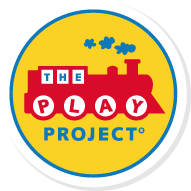In the spirit of the ‘back-to-school’ season, Dr. Solomon would like to share his ‘Seven Habits of Highly Effective Kindergarteners‘ with you. The following is a list of key milestones to consider as your child transitions into a kindergarten setting:
1) Going along with “the gang.” The child is able to move fluidly with the group as a whole. If everyone else is moving to the crafts area of the room, this child will move with them. We want to promote that this child is part of the group.
2) Able to process auditory stimuli at a distance. This is the ability to listen, hear, and make sense of sounds across space. Others should not need to walk directly up to the child in order to get that child’s attention. Children should be able to answer the question “What did the teacher just say?” even if they are seated in the back of the room.
3) Understanding the main idea. This is determined mainly by the child’s ability to answer open-ended “wh” questions. Examples of this include: “What’s next?” “What did the teacher just tell you?” “What’s the story about?” “What does that mean?”
4) Sequences. The child should be able to complete the following sequence: “Okay children, story time is over, it’s time to go to your desk. When you’re there, take the paper out of the folder I left out for you and wait for my instructions.” [It’s best to use the main idea when helping children understand sequences. Help the child with the main idea, but wait for their input regarding how to get from beginning to the end of the sequence. Instead of prompting the child, we need to challenge the child: “How many steps was that? Which step do we need to do first?” If children are really stuck, we can use picture cues as prompts to facilitate sequencing.]
5) Procedural Memory. The child must remember skills of the past in order to complete current projects. An example if this is making a craft flower from various craft supplies. In order to complete this, the child must recall how to cut, paste, in which order, etc.
6) Processing Speed. Mental processing speed is the time required to take in, understand, and respond to information. Children with good processing speed are able to complete tasks fluidly. Fine motor coordination difficulties can contribute to slow processing speed. Children who exhibit difficulty in this area of cognitive functioning are often mentally exhausted after a school day or while working with subject material that requires multi-tasking and abstract reasoning. Fortunately, slow mental processing can be accommodated with environmental supports so that new learning and competent behavior can take place.
7) Knowing When to Ask For Help. Although somewhat self-explanatory, the child must be able to recognize when he or she is “stuck” or not understanding the task at hand, and must then recognize the need to ask for assistance (and know how to ask for help).
